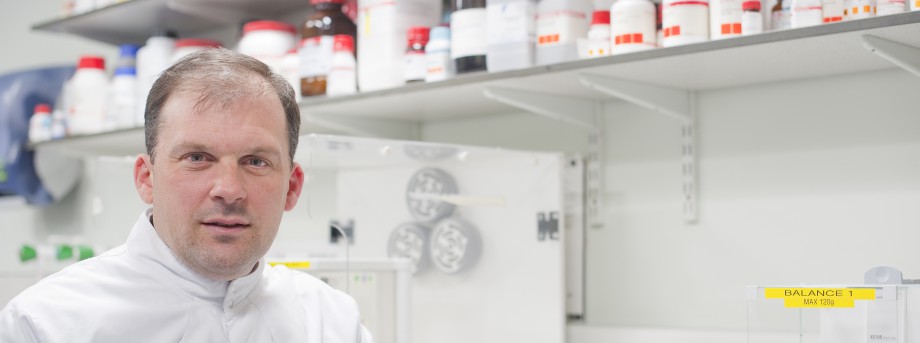The University of Nottingham
 Exchange online
Exchange online
Research Exchange
Stem cell pioneer honoured

A University of Nottingham scientist who carries out pioneering work in stem cell therapy and tissue engineering has won a prestigious award in the field of regenerative medicine.
Professor Kevin Shakesheff has been given one of the first ever RISE awardsby the Engineering and Physical Sciences Research Council (EPSRC) and Royal Academy of Engineering. The awards are brand new and were set up to recognise the leading scientists and engineers of the UK in this 20th anniversary year of the EPSRC.
An independent judging panel selected their top 10 ‘inspirational’ scientists and engineers put forward by universities, industry, professional bodies and research institutes.
Kevin Shakesheff is working to create new advanced materials and technologies which help stem cells to form functional human tissues. It’s part of a worldwide effort to cure major degenerative diseases and cancer. The key goal is to develop a cost-effective medicine from a living cell. At the heart of this work is the use of engineering and physical sciences to create biomaterials that control, or at least influence, how stem cells grow and form bespoke tissues.
Professor Shakesheff said: “Regenerative medicine will transform the treatment of many of today’s ‘incurable’ diseases. But it’s going to take a very long time because regenerative medicines are very complex. The final product will be a living entity that is probably personalised for just one patient.
“I can’t see any fundamental barrier that will stop future generations being able to grow a personalised organ. We know how to reprogram cells to become stem cells, we have technologies such as 3D printing and advanced materials that can build those cells into organ structures and we understand a lot of the cell and tissue biology that allows tissues for form and repair.
“My hope is that regenerative medicine will create many simpler technologies and treatments that have both commercial and clinical benefits within a decade. Using injected cells to repair parts of organs (e.g. heart tissue after a heart attack) or using stem cells to find new classes of drugs are realistic breakthroughs by 2020 and the UK is trying very hard to be in the leading pack of countries who can deliver this promise.
“I’m delighted to be recognised by the EPSRC as part of their 20th anniversary celebrations because they have been exceptionally supportive since I returned from the US back in the 1990’s. These personal awards are very gratefully received but I want to
stress that science is a team game and so many people at The University of Nottingham and across the world have contributed to my research and deserve credit and my thanks.”
Tags: EPSRC, EPSRC 20th anniversary, Kevin Shakesheff, regenerative medicine, RISE award, Royal Academy of Engineering, stem cell research
Leave a Reply
Other News

Top prize for quantum physicist
A University of Nottingham physicist has won a prestigious medal from the Institute of Physics for […]

Zero carbon HOUSE designed and built by students comes home
Design and construct a low cost, zero carbon, family starter home, transport it to Spain, build […]